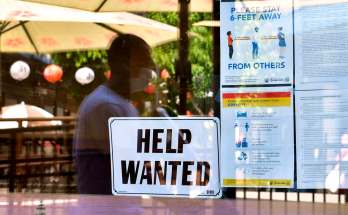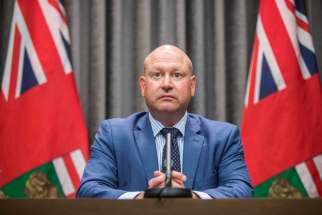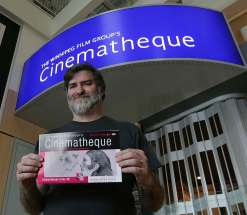Residential school sex abuse report in Crown hands for 17 months
Read this article for free:
or
Already have an account? Log in here »
To continue reading, please subscribe:
Monthly Digital Subscription
$19 $0 for the first 4 weeks*
- Enjoy unlimited reading on winnipegfreepress.com
- Read the E-Edition, our digital replica newspaper
- Access News Break, our award-winning app
- Play interactive puzzles
*No charge for four weeks then billed as $19 plus GST every four weeks. Offer only available to new and qualified returning subscribers. Cancel any time.
Read unlimited articles for free today:
or
Already have an account? Log in here »
Hey there, time traveller!
This article was published 26/07/2021 (1247 days ago), so information in it may no longer be current.
The results of a sprawling, decade-long investigation by Manitoba RCMP into historic allegations of child sex abuse at the Fort Alexander Indian Residential School have been sitting on the desk of the provincial Crown attorneys’ office for 17 months.
That’s according to a justice source, who confirmed to the Free Press the investigative package was delivered to Manitoba Prosecution Services in February 2020.
The amount of materials gathered during the course of the 10-year investigation — in which 80 RCMP officers interviewed more than 700 people and gathered 75 victim and witness statements — was overwhelming, the source said.
Crown attorneys now must review the results of the investigation and instruct the Mounties on whether criminal charges should be laid.
No former staff from the Fort Alexander Indian Residential School — which operated at Sagkeeng First Nation from 1905 to 1970 — has ever faced charges.
Manitoba’s justice minister and attorney general, Cameron Friesen, would not get into the details of the case when asked for comment Tuesday.
“I have a unique role (as attorney general) to make sure the court processes are completely independent. It’s the cornerstone, it’s the foundation of our system of government. I won’t comment on the case itself, except to say we have faith in this process,” Friesen said.
“This is a very significant investigation by the RCMP… The investigative work continues. The Crown prosecutor office, now, of course, determines the next course of action and we have confidence in that course of action.”
Manitoba Indigenous leaders expressed their support Tuesday to the community of Sagkeeng, located some 120 kilometres northeast of Winnipeg.
While children from 21 different communities were sent to the school when it was open, the community most affected by its legacy is Sagkeeng.
Ministers mum on colonization comments
Two Manitoba senior cabinet ministers refused Tuesday to call out Premier Brian Pallister over recent comments that continue to roil Indigenous leaders.
Two Manitoba senior cabinet ministers refused Tuesday to call out Premier Brian Pallister over recent comments that continue to roil Indigenous leaders.
The premier had suggested July 7 colonizers “didn’t come here to destroy anything,” setting off a firestorm that contributed to the resignation of MLA Eileen Clarke from Tory cabinet.
First Nations grand chiefs have declared the entire Pallister government to be racist, and urged ministers to reject the remarks or leave public office.
On Tuesday, Justice Minister Cameron Friesen refused to say whether he agrees with those views, instead repeating prior remarks about a need for calm.
“I have made my comments,” Friesen told reporters. “The path forward for all of us is a path of dialogue and engagement.”
Meanwhile, Families Minister Rochelle Squires refused to specify a vague July 16 statement where she said “recent events and comments” have concerned her.
“I believe that statement stands for itself,” Squires said, refusing twice to say whether that meant the premier’s comments, those from Indigenous leaders, or new Reconciliation Minister Alan Lagimodiere’s statement residential schools were started with good intentions (which he has since apologized for).
The Opposition NDP has said each minister needs to clearly reject Pallister’s comments, or reconciliation will be impossible.
— Dylan Robertson and Erik Pindera
“We expect it to be a thorough investigation, and at the end, for those guilty of horrendous crimes against children to be brought to justice using the full extent of the law,” Southern Chiefs’ Organization Grand Chief Jerry Daniels said in a written statement.
“We’ve waited more than long enough for these criminals to held fully accountable.”
Assembly of Manitoba Chiefs Grand Chief Arlen Dumas said in a written statement his organization “will reserve comment at this time, so as not to prejudice the investigation.”
The existence of the Manitoba RCMP criminal investigation into the former residential school was first reported by the Free Press.
The Mountie probe began in February 2010, after decades of allegations of abuse made against school staff.
The issue first came to wide public attention in 1990, when then-Assembly of Manitoba Chiefs leader Phil Fontaine spoke out about the childhood sexual abuse he’d suffered at the school.
Dave Rundle, a Fort Alexander survivor whose time at the school coincided with Fontaine’s, said news of the criminal investigation caught him off guard and brought memories from his childhood rushing back.
During an interview with the Free Press, he lamented the fact it’s taken more than three decades since Fontaine spoke to get to this point.
“I think it took that long because as Indigenous people we weren’t believed. I don’t think anyone would have believed an Indigenous child’s word against a priest or a nun. In those days, they were the ultimate authority,” Rundle said.
“It’s a bit late. I don’t know if they heard about allegations way back when, in the mid-50s… A lot of the people who were abusers, at least during my generation, have probably passed on.”
The Fort Alexander Indian Residential School was run by a Catholic religious order called the Missionary Oblates of Mary Immaculate – an entity deeply entwined with the history of the residential school system in Canada.
A request for comment sent to the Missionary Oblates of Mary Immaculate was not responded to by deadline Tuesday.
In a written statement Tuesday, Archbishop Richard Gagnon of the Archdiocese of Winnipeg said he was saddened to hear news of the allegations.
“It is important that the criminal investigation proceed so that the truth will be revealed and appropriate actions be taken,” Gagnon said.
“This is a difficult time for the people of Sagkeeng First Nation, indeed for all Canadians, as we come to a greater awareness of the residential school legacy in our nation. May our Creator bring peace and healing into this painful situation.”“I would like to see them pay for their crimes, to be held accountable somehow. But how, I don’t know” — Dave Rundle, a Fort Alexander survivor
Archbishop Albert LeGatt of the Archdiocese of St. Boniface was unable to be reached for comment Tuesday. Instead, a spokesperson for the archdiocese sent a written statement detailing efforts the archbishop has made towards reconciliation in recent years.
Investigations of this scope and size, connected to residential schools, are believed to be rare in Canada.
In the mid-1990s, the British Columbia RCMP launched a task force to investigate historic abuse allegations at residential schools in the province. In total, 14 former staff were charged with various offences.
From 1992 to 1998, the Ontario Provincial Police investigated abuse allegations at the St. Anne’s Indian Residential School. Seven suspects were eventually charged, with five convicted. Survivors of the school later launched a class-action lawsuit against the Canadian government.
As part of the Indian Residential Schools Settlement Agreement, the federal government spent roughly $1.5 million hiring private investigators to track down alleged abusers among former residential school staff.
The government located more than 5,300 alleged abusers, who were not sought to face criminal charges but to be asked to participate in hearings for the settlement process.
Rundle said if there are still former staff from the Fort Alexander Indian Residential School alive who abused children, he’d like to see them brought to justice.
But after so many years, he’s not even sure what justice would look like.
“I would like to see them pay for their crimes, to be held accountable somehow. But how, I don’t know,” Rundle said.
“I’m not saying all the nuns were bad or all the priests were bad… But the ones who were, they should be held accountable just like anyone else would be now.”
— with files from Erik Pindera
ryan.thorpe@freepress.mb.ca
Twitter: @rk_thorpe

Ryan Thorpe
Reporter
Ryan Thorpe likes the pace of daily news, the feeling of a broadsheet in his hands and the stress of never-ending deadlines hanging over his head.
Our newsroom depends on a growing audience of readers to power our journalism. If you are not a paid reader, please consider becoming a subscriber.
Our newsroom depends on its audience of readers to power our journalism. Thank you for your support.









